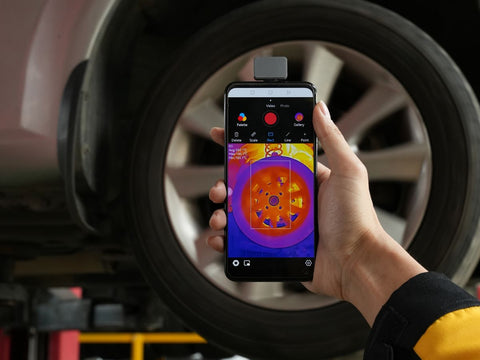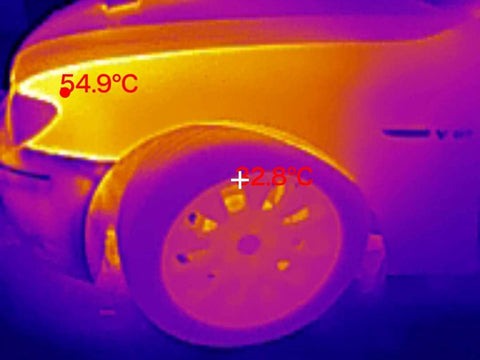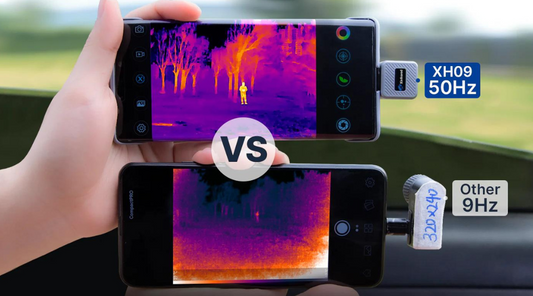5 Benefits of Using Thermal Imaging to Improve Automotive Inspection Efficiency
Efficiency is crucial in this fast-paced world, particularly in car checks. Conventional approaches usually waste precious time and can't be effective in the detection of problems. However, with technological advances, thermal imaging has become a game-changing tool for vehicle testing. In this article, we will look at 5 of the reasons for a more effective car check.
Rationale 1: Enhanced Detection Capabilities
The main reason that thermal imaging works so well in car checks is that it has improved detection capabilities. In contrast to a visual examination or a fundamental diagnosis, a thermal scan can detect a slight temperature change, which could be an indication of an underlying problem. Heat spots on the engine, for example, can be an indication of potential overheating or faulty components. If machinery issues are detected early, they can be resolved before becoming costly malfunctions or repairs.

Rationale 2: Time Efficiency
Time is of the utmost importance for the car industry, and thermal imaging can be used to save valuable minutes on checks. Compared to conventional approaches which might need to be dismantled or subjected to massive testing, the thermal imaging offers immediate results. Engineers will be able to rapidly scan critical parts of a car, like an engine, a brake, or an electric system, so they don't have to wait for it to be cooled or removed. This simplifies the inspection procedure and enables engineers to operate more cars in a shorter period.
Rationale 3: Cost Savings
Apart from time-saving, thermographic technology can also result in substantial cost savings for car dealers as well as car owners. Through early detection of possible problems, a mechanic can avoid expensive repairs downstream. If detected, a small coolant leak can prevent costly engine damage. In addition, thermal imaging can prevent unnecessary repairs by identifying the exact cause of an issue, removing the guesswork, and reducing labor costs.

Rationale 4: Safety Improvements
In the automobile sector, safety is of utmost importance, and thermal imaging can contribute to increased security at the time of inspection. Through the identification of possible dangers, for example, an over-heated part or an electric failure, the mechanical operator can act proactively to deal with them. This will not only protect the car and passengers but also guarantee the security of those who carry out the check. Thermal cameras can detect security hazards before endangering cars or passengers.
Rationale 5: Environmental Benefits
Finally, thermal imaging provides an environmental advantage by cutting down on the amount of waste and the use of resources. Conventional testing typically utilizes environmentally harmful chemicals such as dyes or solvents. By comparison, thermography is a noninvasive technology that does not require any extra chemicals or materials. By eliminating waste and minimizing the impact of car inspections on the environment, these cameras contribute to the sustainable development of the automobile industry.

Thermal imaging provides several advantages for car testing, such as improved detecting ability, time efficiency, cost reduction, security, and environmental protection. Car dealerships can increase productivity and reduce costs by simplifying their testing procedures using this technique. Thermal imaging technology's continuous advancements will bring about a revolution in automobile testing methods.




